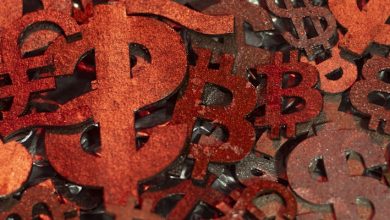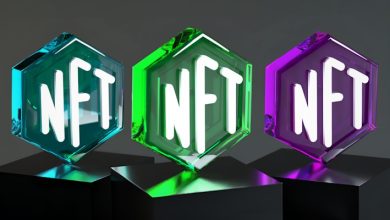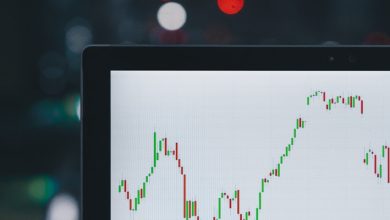The Future of Decentralized Finance (DeFi) and Its Market Impact

- Understanding Decentralized Finance (DeFi)
- The Rise of DeFi: A Game Changer in the Financial Industry
- Challenges and Opportunities in the DeFi Ecosystem
- Regulatory Trends Shaping the Future of DeFi
- DeFi’s Impact on Traditional Banking and Financial Institutions
- Investing in DeFi: Strategies for Success
Understanding Decentralized Finance (DeFi)
Decentralized finance, commonly referred to as DeFi, is a rapidly growing sector within the cryptocurrency industry. DeFi refers to a system where financial products are built on blockchain technology, allowing for peer-to-peer transactions without the need for traditional financial intermediaries like banks. This innovative approach to finance has gained significant traction in recent years, offering users greater control over their assets and the ability to access a wide range of financial services.
One of the key principles of DeFi is the concept of decentralization, which means that the control and ownership of assets are distributed among a network of participants rather than being held by a single entity. This decentralized nature of DeFi platforms makes them resistant to censorship and less prone to manipulation, providing users with a higher level of security and privacy.
Through the use of smart contracts, DeFi platforms automate the execution of transactions, eliminating the need for intermediaries and reducing the associated costs. This automation also allows for greater efficiency and transparency in financial transactions. Smart contracts are self-executing contracts with the terms of the agreement directly written into code, ensuring that transactions are conducted exactly as programmed.
DeFi platforms offer a wide range of financial services, including lending, borrowing, trading, and investing, all without the need for traditional financial institutions. Users can earn interest on their cryptocurrency holdings by providing liquidity to decentralized exchanges or lending platforms. Additionally, DeFi platforms allow for the creation and trading of synthetic assets, enabling users to gain exposure to traditional financial markets without actually owning the underlying assets.
The Rise of DeFi: A Game Changer in the Financial Industry
Decentralized Finance (DeFi) has been on the rise in recent years, revolutionizing the traditional financial industry. DeFi refers to the use of blockchain technology and cryptocurrencies to recreate traditional financial systems such as banking, lending, and trading in a decentralized manner. This innovative approach eliminates the need for intermediaries like banks, allowing for peer-to-peer transactions and greater financial inclusion.
One of the key advantages of DeFi is its accessibility. Anyone with an internet connection can access DeFi platforms and start using financial services without the need for a traditional bank account. This opens up a world of possibilities for individuals who are underserved by the traditional banking system, particularly in developing countries.
Furthermore, DeFi offers a high level of transparency and security. Transactions are recorded on a public blockchain, making them immutable and traceable. This reduces the risk of fraud and manipulation, providing users with greater peace of mind when using DeFi platforms.
Another game-changing aspect of DeFi is its ability to enable programmable money through smart contracts. Smart contracts are self-executing contracts with the terms of the agreement directly written into code. This automation allows for a wide range of financial services to be created and executed without the need for human intervention.
Overall, the rise of DeFi is poised to disrupt the financial industry as we know it, offering new ways for individuals to access and interact with financial services. As DeFi continues to evolve and gain mainstream adoption, its market impact is expected to be significant, reshaping the way we think about finance and democratizing access to financial services for all.
Challenges and Opportunities in the DeFi Ecosystem
The DeFi ecosystem presents a variety of challenges and opportunities that can shape its future trajectory. One of the main challenges facing the DeFi space is the issue of security and hacks. As the industry continues to grow, bad actors are constantly looking for ways to exploit vulnerabilities in DeFi protocols. This underscores the importance of security audits and rigorous testing to ensure that DeFi platforms are robust and secure. Additionally, regulatory uncertainty poses a challenge to the widespread adoption of DeFi. Governments around the world are still grappling with how to regulate this nascent industry, which could potentially stifle innovation and growth.
Despite these challenges, the DeFi ecosystem also presents numerous opportunities for innovation and disruption. One of the key opportunities is the ability to provide financial services to the unbanked and underbanked populations around the world. By leveraging DeFi technologies, individuals who were previously excluded from traditional financial systems can now access a wide range of services such as lending, trading, and payments. This has the potential to empower millions of people and drive financial inclusion on a global scale.
Regulatory Trends Shaping the Future of DeFi
The regulatory landscape for DeFi is constantly evolving as governments around the world grapple with how to oversee this rapidly growing sector. Regulatory trends are shaping the future of DeFi in significant ways, influencing everything from compliance requirements to market access.
One key trend is the increasing focus on Know Your Customer (KYC) and Anti-Money Laundering (AML) regulations in the DeFi space. Regulators are keen on ensuring that DeFi platforms implement robust KYC and AML processes to prevent illicit activities such as money laundering and terrorist financing.
Another important trend is the push for greater transparency in DeFi transactions. Regulators are looking to ensure that DeFi platforms provide clear information about their operations, including details on how user funds are handled and secured.
Additionally, there is a growing emphasis on investor protection in the DeFi space. Regulators are working to establish frameworks that safeguard investors from fraud and ensure that they have recourse in case of disputes with DeFi platforms.
Overall, these regulatory trends are shaping the future of DeFi by fostering a more secure and transparent environment for users and investors. By staying abreast of these developments, DeFi platforms can position themselves for long-term success in this rapidly evolving market.
DeFi’s Impact on Traditional Banking and Financial Institutions
Decentralized Finance (DeFi) has been making waves in the financial industry, challenging traditional banking and financial institutions. The impact of DeFi on these traditional entities is significant, with many of them having to adapt to the changing landscape or risk becoming obsolete.
One of the key ways in which DeFi is impacting traditional banking is through disintermediation. By cutting out the middleman, DeFi platforms are able to offer financial services directly to users, reducing the need for traditional banks. This has led to a shift in power dynamics, with individuals having more control over their finances.
Additionally, DeFi is also changing the way in which financial transactions are conducted. With the use of blockchain technology, transactions on DeFi platforms are faster, more secure, and often less expensive than those conducted through traditional banks. This has resulted in increased competition for traditional financial institutions.
Furthermore, DeFi is also opening up opportunities for individuals who may not have had access to traditional banking services. With DeFi platforms, anyone with an internet connection can participate in financial activities such as lending, borrowing, and investing. This has the potential to democratize finance and promote financial inclusion.
In conclusion, the impact of DeFi on traditional banking and financial institutions is undeniable. As DeFi continues to grow and evolve, traditional entities will need to adapt in order to stay relevant in the ever-changing financial landscape.
Investing in DeFi: Strategies for Success
When it comes to **investing** in DeFi, there are **strategies** that can help **you** succeed in this **rapidly** growing market. **One** key **strategy** is to **diversify** your **portfolio** to **minimize** **risk**. By **investing** in **multiple** DeFi **projects**, **you** can **spread** out **your** **investment** and **reduce** the impact of **potential** **losses**. It’s also **important** to **conduct** thorough **research** on **each** **project** **before** **investing** to **understand** their **technology**, **team**, and **roadmap**.
Another **important** **strategy** is to **keep** **up** with the **latest** **trends** and **developments** in the DeFi **space**. **Staying** **informed** about **new** **projects**, **partnerships**, and **regulatory** **changes** can **help** **you** make **informed** **decisions** about **where** to **allocate** **your** **funds**. **Networking** with other **investors** and **experts** in the **field** can also **provide** **valuable** **insights** and **opportunities**.
Additionally, **risk** **management** is **crucial** when **investing** in DeFi. **You** should **only** **invest** **what** **you** can **afford** to **lose** and **set** **stop** **loss** **limits** to **protect** **your** **investments**. **Regularly** **review** **your** **portfolio** and **adjust** **your** **strategy** **according** to **market** **conditions**. **By** **following** these **strategies**, **you** can **position** **yourself** for **success** in the **exciting** world of DeFi **investing**.



